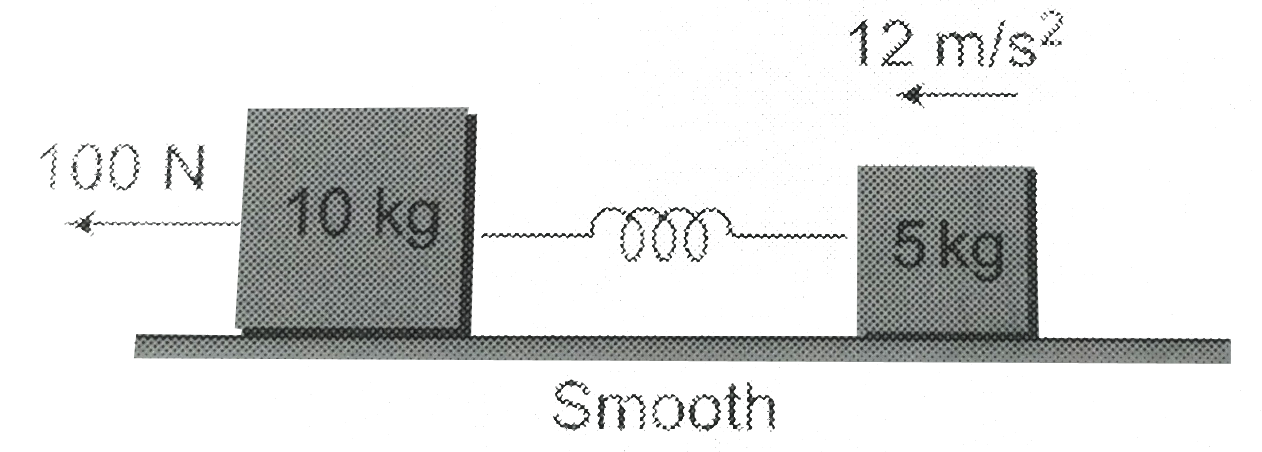If a force of 30.6 kg acts on a 60 kg mass, calculate the resulting acceleration. (1 k.g of force = 9.8 newtons)
5m/sec2
2m/sec2
0.5m/sec2
9.8m/sec2
The correct Answer is:A
Use f=ma when m =60 kg and f =30.6 kg force (convert to newtons)
f=(30.6)(9.8)=300 newtons
a=f/m=300 kg /60 a=5m/sec2
Topper's Solved these Questions
Similar Questions
Knowledge Check
Two forces 25 N and 16 N act on a body of mass 1.0 kg. the minimum acceleration will be
A25ms−2B16ms−2C9ms−2D41ms−2Two forces 25 N and 16 N act on a body of mass 1.0 kg. The minimum acceleration will be
A25ms−2B16ms−2C9ms−2D41ms−2Two forces 25 N and 16 N act on a body of mass 1.0 kg. The minimum acceleration will be
A25ms−2B16ms−2C9ms−2D41ms−2

Two blocks of masses 5 kg and 10 kg are connected by a massless spring as shown in the diagram. A force of 100 N acts on 10kg mass as shown. At a certain instant the acceleration of 5 kg mass is 12 m/s2 find the force in the spring and acceleration of 10 kg mass.
View SolutionThe frictional force acting on 1 kg block is

View SolutionTwo forces 25 n and 16 N act on a body of mass 1.0 kg . The minimum acceleration will be
View SolutionThe masses of 10 kg and 20 kg, respectively, are connected by a light spring as shown in the figure. A force of 200 N acts upon the 20 kg mass. At the instant shown, the 10 kg mass the acceleration of 12m/s2. The acceleration of 20 kg mass is

View SolutionThe masses of 10 kg and 20 kg respectively are connected by a massless spring as shown in figure. A force of 200 N acts on the 20 kg mass. At the instant shown, the 10 kg mass has acceleration 12m/sec2 . What is the acceleration of 20 kg mass

View Solution

